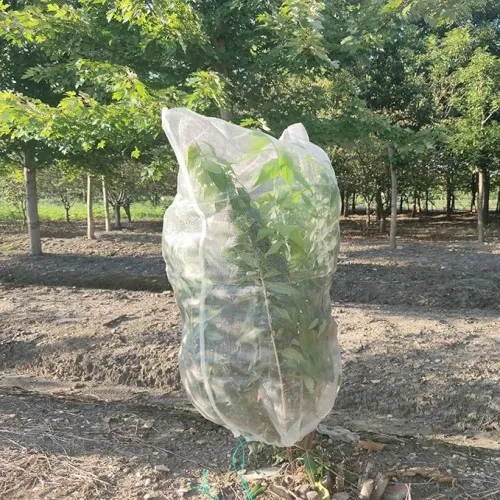-
 Afrikaans
Afrikaans -
 Albanian
Albanian -
 Amharic
Amharic -
 Arabic
Arabic -
 Armenian
Armenian -
 Azerbaijani
Azerbaijani -
 Basque
Basque -
 Belarusian
Belarusian -
 Bengali
Bengali -
 Bosnian
Bosnian -
 Bulgarian
Bulgarian -
 Catalan
Catalan -
 Cebuano
Cebuano -
 China
China -
 Corsican
Corsican -
 Croatian
Croatian -
 Czech
Czech -
 Danish
Danish -
 Dutch
Dutch -
 English
English -
 Esperanto
Esperanto -
 Estonian
Estonian -
 Finnish
Finnish -
 French
French -
 Frisian
Frisian -
 Galician
Galician -
 Georgian
Georgian -
 German
German -
 Greek
Greek -
 Gujarati
Gujarati -
 Haitian Creole
Haitian Creole -
 hausa
hausa -
 hawaiian
hawaiian -
 Hebrew
Hebrew -
 Hindi
Hindi -
 Miao
Miao -
 Hungarian
Hungarian -
 Icelandic
Icelandic -
 igbo
igbo -
 Indonesian
Indonesian -
 irish
irish -
 Italian
Italian -
 Japanese
Japanese -
 Javanese
Javanese -
 Kannada
Kannada -
 kazakh
kazakh -
 Khmer
Khmer -
 Rwandese
Rwandese -
 Korean
Korean -
 Kurdish
Kurdish -
 Kyrgyz
Kyrgyz -
 Lao
Lao -
 Latin
Latin -
 Latvian
Latvian -
 Lithuanian
Lithuanian -
 Luxembourgish
Luxembourgish -
 Macedonian
Macedonian -
 Malgashi
Malgashi -
 Malay
Malay -
 Malayalam
Malayalam -
 Maltese
Maltese -
 Maori
Maori -
 Marathi
Marathi -
 Mongolian
Mongolian -
 Myanmar
Myanmar -
 Nepali
Nepali -
 Norwegian
Norwegian -
 Norwegian
Norwegian -
 Occitan
Occitan -
 Pashto
Pashto -
 Persian
Persian -
 Polish
Polish -
 Portuguese
Portuguese -
 Punjabi
Punjabi -
 Romanian
Romanian -
 Russian
Russian -
 Samoan
Samoan -
 Scottish Gaelic
Scottish Gaelic -
 Serbian
Serbian -
 Sesotho
Sesotho -
 Shona
Shona -
 Sindhi
Sindhi -
 Sinhala
Sinhala -
 Slovak
Slovak -
 Slovenian
Slovenian -
 Somali
Somali -
 Spanish
Spanish -
 Sundanese
Sundanese -
 Swahili
Swahili -
 Swedish
Swedish -
 Tagalog
Tagalog -
 Tajik
Tajik -
 Tamil
Tamil -
 Tatar
Tatar -
 Telugu
Telugu -
 Thai
Thai -
 Turkish
Turkish -
 Turkmen
Turkmen -
 Ukrainian
Ukrainian -
 Urdu
Urdu -
 Uighur
Uighur -
 Uzbek
Uzbek -
 Vietnamese
Vietnamese -
 Welsh
Welsh -
 Bantu
Bantu -
 Yiddish
Yiddish -
 Yoruba
Yoruba -
 Zulu
Zulu
agricultural insect netting
The Importance of Agricultural Insect Netting in Sustainable Farming
In recent years, the agricultural sector has increasingly turned to innovative solutions to protect crops and boost yields while minimizing environmental impact. One such solution is agricultural insect netting. This method plays a crucial role in promoting sustainable farming practices by acting as a physical barrier against pests and harmful insects.
Agricultural insect netting is designed specifically to cover crops, allowing sunlight and rain to penetrate while preventing unwanted pests from accessing the plants. These nets are typically made from lightweight, durable materials, ensuring that they provide long-lasting protection without inhibiting air circulation. By using insect netting, farmers can significantly reduce their reliance on chemical pesticides, which are not only harmful to the environment but can also pose health risks to consumers and farmworkers.
One of the key benefits of insect netting is its effectiveness against a wide range of pests. From aphids and whiteflies to larger insects like beetles, agricultural netting serves as an effective deterrent. This ability to block pests leads to healthier crops and can result in higher yields. With increased consumer awareness regarding food safety and the demand for organic produce, farmers utilizing insect nets can better meet market expectations while reaping the economic benefits of reduced pesticide use.
agricultural insect netting

Another noteworthy advantage of agricultural insect netting is its role in facilitating sustainable farming practices. By protecting crops naturally, farmers can maintain the ecological balance within their fields. Insect netting promotes the presence of beneficial insects, like pollinators and natural predators, which can help control pest populations without the need for harmful chemicals. This approach not only supports biodiversity but also enhances soil health and conservation efforts.
Moreover, the use of insect netting aligns with the principles of integrated pest management (IPM). IPM encourages a combination of biological, cultural, and mechanical practices to control pest populations sustainably. Insect netting is an integral part of this strategy, acting as a non-chemical control method that complements other IPM strategies, such as crop rotation and the use of organic fertilizers.
In addition to its ecological and economic benefits, agricultural insect netting is also versatile. It can be used in various agricultural settings, from small-scale farms to larger commercial operations. Farmers can adapt and customize the netting to suit their specific crops and local pest challenges, ensuring maximum effectiveness and efficiency.
In conclusion, agricultural insect netting is a vital tool in the landscape of sustainable farming. By providing a protective barrier against pests, it helps reduce chemical pesticide use, fosters biodiversity, and supports integrated pest management practices. As the agricultural industry continues to evolve and adapt to the challenges of climate change and consumer demand, the importance of such innovative solutions cannot be overstated. Agricultural insect netting not only protects crops but also promotes a healthier environment for generations to come.
-
Shipping Plastic Bags for Every NeedNewsJul.24,2025
-
Safety Netting: Your Shield in ConstructionNewsJul.24,2025
-
Plastic Mesh Netting for Everyday UseNewsJul.24,2025
-
Nylon Netting for Every UseNewsJul.24,2025
-
Mesh Breeder Box for Fish TanksNewsJul.24,2025
-
Expanded Steel Mesh Offers Durable VersatilityNewsJul.24,2025











